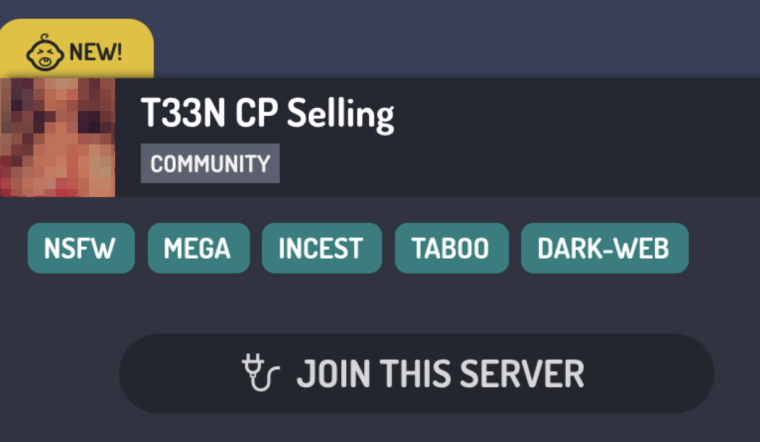The Truth About T33n Online: Staying Safe And Knowing What To Do
The internet, in a way, feels like a vast, open space, doesn't it? It holds so much information, so many connections, and a whole lot of different experiences. You can learn new things, connect with people from far away, or simply find something to make you smile. Yet, like any big, open place, there are parts that are not so bright, parts that hide things you would rather not see.
Sometimes, a term or a search suggestion pops up, and it might seem harmless, or even a little bit curious, you know? The term "t33n" is one of those. It looks like a simple misspelling of a common word, perhaps something about young people. But, as a matter of fact, its presence in certain online discussions points to something much more serious, something that needs real attention.
This article aims to shed some light on what "t33n" can mean in certain online contexts, particularly the very concerning ones. We will talk about the real dangers it can point to, and, just as importantly, what you can do if you ever come across such things. It's about being aware, staying safe, and knowing how to act responsibly online, very much so.
Table of Contents
- What Exactly is 't33n' in the Online World?
- The Hidden Dangers of 't33n' Related Searches
- Protecting Yourself and Others: What to Do
- Understanding Online Content: A Wider View
- Frequently Asked Questions About Online Safety
What Exactly is 't33n' in the Online World?
When you see "t33n" pop up online, it's often not what it seems, you know? It might look like a simple way to write "teen," but in specific corners of the internet, it takes on a very different, very disturbing meaning. Our research, for instance, shows this word appearing in discussions about "hacked accounts" and "leak" content. This suggests something already problematic: private information shared without permission, which is bad enough on its own, so it is.
However, the situation gets much more serious. There are instances where "t33n" is directly connected to searches and sites that trade in highly illegal material. For example, some search suggestions, as a matter of fact, link "t33n" with terms that point to child pornography. This is a very grave matter, and it means the word can act as a gateway to truly awful content.
We've seen mentions of online spaces, like certain message boards, where people exchange things referred to as "cp." This is a known abbreviation for child pornography. The fact that "t33n" appears alongside these terms, or as a search suggestion leading to such content, is a huge red flag. It indicates that this seemingly innocent word is, in some contexts, a code or a marker for illegal and deeply harmful activities. It's a very troubling connection, to be honest.
There are also online communities, like certain subreddits, that use variations such as "r/t33n_link" or usernames like "u/t33n_l3aks." These names, too, imply content that is either "leaked" or "nsfw," which means "not safe for work." While "nsfw" can cover many things, in this context, given the other associations, it raises very serious concerns about the nature of the content being shared. It's almost as if these terms are used to hint at something illicit without being too direct, you know?
So, when you see "t33n," it's important to understand that it's often not about innocent discussions of young people. Instead, it can be a signal, a kind of digital breadcrumb, leading to very dark corners of the internet. These corners often involve illegal content, privacy violations, and, in the most concerning cases, the exploitation of children. It's a word that carries a heavy, hidden meaning in the online world, and knowing this is the first step toward staying safe, really.
The Hidden Dangers of 't33n' Related Searches
Searching for or even accidentally encountering "t33n" related content carries some very real dangers, so it does. The most immediate and horrifying risk is stumbling upon illegal material, particularly child pornography. One person, for instance, shared an experience of simply searching for "porn" and finding "literal child pornography." This shows how easily someone can be exposed to such horrific imagery, even without looking for it directly. This kind of accidental exposure can have a lasting, very negative impact on a person's well-being, you know.
Beyond the direct exposure, there are other risks involved. Sites that host or link to "t33n" content, especially "leak hacked accounts," are often not secure. They might be filled with malware, viruses, or other harmful software that can infect your computer or device. This means your personal information could be at risk, or your system could be damaged. It's a very real threat to your digital security, to be honest.
Engaging with such content, even out of curiosity, can also put you in a difficult spot. Accessing or distributing child pornography is a serious crime in many places around the world. Even if you come across it by accident, simply viewing it or not reporting it can have legal consequences, depending on the specific situation and local laws. It's a very serious matter, and ignorance, sadly, doesn't always protect you.
Then there's the emotional and psychological toll. Seeing such content, especially child exploitation material, can be deeply upsetting and traumatic. The imagery can stick with you, causing distress, anxiety, or even a sense of disgust, as one person described feeling. It's not something anyone wants to carry in their mind, and it can affect your mental health in ways you might not expect. It's a very heavy burden, really.
Furthermore, these types of online spaces often operate outside of regular internet norms. They might be difficult to trace, or they might try to evade detection. This makes them dangerous because there's less oversight and more opportunity for illegal activities to continue unchecked. The anonymity, in a way, can encourage people to share or seek out things they wouldn't otherwise, which creates a very unhealthy environment, you know.
So, the dangers of "t33n" related searches are not just theoretical. They are very real, spanning from legal risks and cybersecurity threats to profound psychological harm. It's a reminder that not everything online is what it seems, and some corners of the internet are best avoided, or, if stumbled upon, dealt with very carefully and responsibly, you see.
Protecting Yourself and Others: What to Do
If you ever come across content that seems related to "t33n" and it raises any concerns, especially if it points to illegal or harmful material, knowing what to do is very important. The first and most crucial step is to report it, you know? Organizations like Cybertip or the Internet Watch Foundation (IWF) are set up specifically to handle reports of child exploitation material and other illegal online content. They know how to investigate and work with law enforcement to get this material removed and bring those responsible to justice. It's a very direct way to make a difference.
You should also avoid clicking on suspicious links or downloading anything from unknown sources. If a link or a search result looks questionable, it's always better to stay away. As a matter of fact, some "t33n leak hacked accounts" could be traps to install harmful software on your device. Your computer or phone's security is something you really need to protect, so it is.
When you report something, try to gather as much information as you safely can without viewing the content further. This might include the URL, a screenshot (if it doesn't involve viewing the harmful content directly), or any other details that can help investigators. But, just a little, remember, your safety and well-being come first. Do not put yourself at risk by trying to gather too much information or by lingering on the site, you see.
Talking to someone you trust can also be a good idea, especially if you've been upset by what you've seen. A friend, a family member, or a counselor can offer support and help you process the experience. It's okay to feel shaken by such things, and sharing your feelings can help you cope. There are also helplines available that can provide support and guidance, very much so.
For parents and guardians, having open conversations about online safety with young people is absolutely key. Talk about what they might encounter online, the difference between private and public information, and the importance of telling an adult if they see anything that makes them uncomfortable. Tools like parental controls can also help, but they are just one part of a wider strategy that includes communication and trust, you know.
Finally, keep your software and devices updated. Regular updates often include security fixes that protect against new threats. Using strong, unique passwords for your online accounts and enabling two-factor authentication can also add layers of protection. Staying informed about online risks and safe practices is a continuous process, really. Learn more about online safety practices on our site, and link to this page for more internet security tips.
Remember, your actions can make a difference in making the internet a safer place. Reporting illegal content, protecting your own digital space, and educating yourself and others are all important steps. If you encounter something that seems like child exploitation, please report it immediately to the National Center for Missing and Exploited Children (NCMEC) at Cybertip.org. They are there to help, you know.
Understanding Online Content: A Wider View
The internet is a very big place, with all sorts of communities and types of content. Some communities, like "r/totalpackage" or "r/thicc_anime," focus on sharing images of women, often for appreciation of physical features or artistic styles. These spaces, while sometimes adult in nature ("nsfw"), are generally about consensual adult content or artistic expression, you know? They exist within a different framework than the truly harmful stuff. It's important to understand this difference, really.
Then you have discussions around things like "Destiny 2 leaked content" or "unconfirmed leaks." This is about gaming, and it involves speculation or early looks at game features. While "leaks" here might mean breaking a non-disclosure agreement, it's about game information, not personal exploitation. It's a completely different kind of "leak" than what "t33n" can refer to, you see. The context makes all the difference, apparently.
Even things like "playeras voleibol" or "voleibol playeras" – which are about volleyball shirts and clothing – show the vast range of everyday topics discussed online. These are simply about sports and fashion, and they highlight how diverse online content can be. It's just a little example of the everyday things people look for and share, you know.
The key takeaway here is that not all "nsfw" or "leak" content is the same. The term "t33n," however, stands out because of its direct association with illegal and harmful material, specifically child exploitation. This is where the line is drawn very clearly. It's not about adult content or game spoilers; it's about something that causes real harm and is against the law, absolutely.
Understanding these distinctions helps you navigate the online world more safely. It means being able to recognize when something is just adult content (which may or may not be for you) versus something that is fundamentally illegal and needs to be reported. Being aware of the specific signs, like the use of "t33n" in certain contexts, helps you identify the truly dangerous areas. It's about developing a keen eye for what's really going on, you know, and not just taking things at face value, so it is.
The online world, very much like a big city, has its safe neighborhoods and its dangerous alleys. Knowing which is which, and how to react when you find yourself in a bad spot, is a big part of being a responsible internet user. It's about protecting yourself and contributing to a safer environment for everyone online, really.
Frequently Asked Questions About Online Safety
What should I do if I accidentally see child pornography online?
If you accidentally see child pornography, the most important thing is not to download or share it. You should, as a matter of fact, immediately report it to the proper authorities. In the United States, you can report it to the National Center for Missing and Exploited Children (NCMEC) at Cybertip.org. Many countries have similar organizations. Close the window or tab where you saw the content, and try to avoid looking at it again. It's okay to feel upset, and seeking support from a trusted person or a helpline can help, you know.
How can I protect my children from harmful online content?
Protecting children online involves several steps. You should, first of all, have open and honest conversations with them about internet safety. Talk about what they might see, who they might talk to, and the importance of telling you if anything makes them uncomfortable. Using parental control software can help filter content, but it's not foolproof. Keep devices in common areas of the house, and teach them about privacy and not sharing personal information. Regularly review their online activities and friend lists, too, it's almost a constant effort.
Is it always illegal to view "nsfw" content?
No, not all "nsfw" (not safe for work) content is illegal, you know. "NSFW" often refers to content that is adult in nature, like pornography involving consenting adults, or graphic violence, or strong language. This kind of content is usually legal for adults to view, depending on local laws and age restrictions. However, any content involving the exploitation of children, regardless of its "nsfw" label, is always illegal and must be reported. The key difference is the presence of illegal acts or child exploitation, which is a very serious distinction, to be honest.

Discord servers used in child abductions, crime rings, sextortion

Unveiling The Mystery Of T33n Leaks: A Deep Dive

t33n leak on trumb 5-17 flaru & tumblr t33n leaks|| SnackVideo